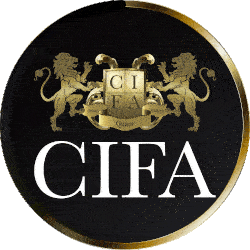


Financial regulations in the UK are enforced by several governing bodies, each responsible for overseeing specific areas of the financial services sector. These authorities were formed to protect consumers, maintain market integrity, and promote healthy competition among financial service providers.
Financial Conduct Authority (FCA): The FCA is the main regulatory body for financial services in the UK. It supervises and regulates more than 56,000 financial services firms and financial markets. The FCA's primary aim is to protect consumers, enhance the integrity of the UK financial system, and promote competition in consumers' interest.
Prudential Regulation Authority (PRA): The PRA is a part of the Bank of England and is responsible for the prudential regulation and supervision of around 1,500 banks, building societies, credit unions, insurers, and major investment firms. Its main objective is to promote the safety and soundness of these firms.
Bank of England (BoE): The BoE is the UK's central bank and is responsible for maintaining monetary and financial stability. It sets interest rates to meet the government's inflation target and issues banknotes among other responsibilities.
Financial Ombudsman Service (FOS): The FOS is an independent body that settles disputes between consumers and businesses that provide financial services. It's free for consumers to use, and its decisions are legally binding on the companies involved.
Financial Services Compensation Scheme (FSCS): The FSCS provides compensation to customers when authorised financial services firms fail. It is an independent body, set up under the Financial Services and Markets Act 2000 (FSMA).
The Pensions Regulator (TPR): The TPR is responsible for protecting workplace pensions in the UK. It works with employers and those running pensions to help people save safely for their retirement.
The regulatory framework set by these bodies ensures that financial institutions operate in a safe and sound manner, protecting consumers from fraud and market manipulation.
Now, on the importance of CPD (Continuing Professional Development) certificates: CPD is a proactive and conscious form of learning which involves keeping up-to-date with the latest industry trends, laws, and regulations. In the financial sector, regulations are constantly evolving, and it is vital for professionals to stay updated to ensure that they adhere to the latest standards and best practices.
Holding a CPD certificate proves that you have not only updated your knowledge and skills, but also that you are committed to lifelong learning and professional improvement. It demonstrates to employers that you are staying up-to-date with the financial regulations of the financial services sector, and you are capable of adapting to changes in the regulatory environment. This can give you an edge over other candidates during recruitment and can also be beneficial for career progression within your existing role or company. The CIFA Introduction to UK Financial regulations and professional integrity certification.
The CIFA Level 4 course is a comprehensive programme designed to provide students with a thorough understanding of the UK financial markets and services. The course is structured into ten chapters, each focusing on a specific area of knowledge and expertise required for the CIFA examination. The estimated total study time for the entire course is approximately 140 hours, with individual chapters allocated varying durations.
Chapter 1: UK Financial Markets (PDF)
This chapter serves as an introduction to the UK financial markets, covering topics such as the structure of the markets, key participants, financial instruments, and trading mechanisms. It provides a foundation for understanding the subsequent chapters.
Chapter 2: UK Financial Services & Risks (PDF)
Building on the knowledge gained in Chapter 1, this chapter delves deeper into the various financial services available in the UK. It explores different types of financial institutions, their functions, and the risks associated with providing financial services.
Chapter 3: Contract & Trust: Legal Framework (PDF)
Understanding the legal framework is crucial in the financial industry. This chapter focuses on the concepts of contracts and trusts, providing an overview of the legal principles and regulations that govern them. It covers key aspects such as formation, terms, and remedies.
Chapter 4: Professionalism and Ethics (PDF)
Ethics and professionalism are essential in the financial services sector. This chapter explores the ethical considerations and professional standards that individuals and companies operating in the industry must adhere to. It emphasises the importance of integrity, honesty, and client confidentiality.
Chapter 5: Regulators of the UK Financial Services (PDF)
Regulatory bodies play a vital role in overseeing and maintaining the integrity of the UK financial services industry. This chapter discusses the roles and responsibilities of key regulators, such as the Financial Conduct Authority (FCA) and the Prudential Regulation Authority (PRA).
Chapter 6: Governance, Principles, and Regulations (FCA and PRA) (PDF)
Good governance and adherence to regulatory principles are crucial for financial institutions. This chapter explores the governance framework and regulatory principles set forth by the FCA and PRA. It covers topics like risk management, compliance, and corporate governance.
Chapter 7: Competence of Companies and Individuals (FCA and PRA) (PDF)
Ensuring the competence of individuals and companies operating in the financial services sector is vital for consumer protection. This chapter examines the regulatory requirements and standards set by the FCA and PRA concerning the competence and qualifications of professionals.
Chapter 8: Regulations Relating to Financial Crime (PDF)
Financial crime poses significant risks to the industry. This chapter focuses on the regulations and measures in place to combat money laundering, fraud, and other financial crimes. It covers topics such as Know Your Customer (KYC) procedures, anti-money laundering (AML) regulations, and terrorist financing.
Chapter 9: Complaints and Redress (PDF)
Handling complaints effectively and providing appropriate redress is crucial for maintaining customer trust. This chapter explores the processes and procedures for handling complaints within the financial services industry, including the role of ombudsman schemes and dispute resolution mechanisms.
Chapter 10: COBS: Conduct of Business Sourcebook of the FCA (PDF)
The Conduct of Business Sourcebook (COBS) sets out the rules and regulations governing the conduct of financial services firms. This chapter examines the key provisions of COBS, including client communication, disclosure requirements, and treating customers fairly.
Upon successful completion of the CIFA examination, a free certificate will be issued to validate the candidate's achievement. This certification serves as a recognition of the individual's knowledge and competence in the field of UK financial markets and services at the CIFA Level 4 standard.
Understanding and staying updated with UK financial regulations is crucial for anyone working in the financial services sector. CPD is an excellent way to demonstrate this understanding and commitment to prospective or current employers.
0 comments